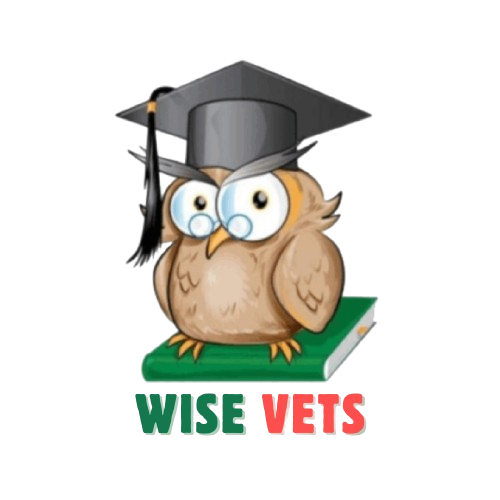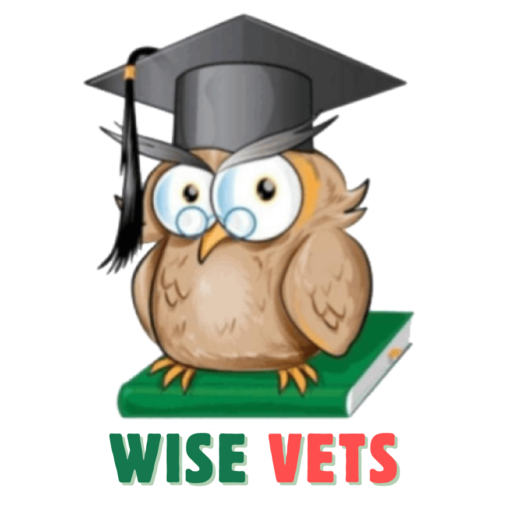Bachelor of Veterinary Medicine Program
Embarking on a journey in veterinary medicine is both exciting and challenging. The Bachelor of Veterinary Medicine (BVetMed) program is designed to equip aspiring veterinary doctors with the knowledge, skills, and experience needed to excel in the field of veterinary science.
Overview of BVetMed Program
The BVetMed program, as offered by the Royal Veterinary College, provides world-leading scientific and clinical training in veterinary medicine. It combines technological advancements, clinical and scientific progress, and stimulating teaching and learning methods.
- Study Mode: Full-time
- Duration: 5 years
- Campuses: Camden and Hawkshead
The curriculum follows a ‘spiral’ approach, where key concepts are revisited at increasing levels of complexity and in different contexts to enhance learning and understanding. This method ensures that students have a strong foundation in veterinary science, which is built upon throughout the program.
| Program Details | Description |
|---|---|
| Study Mode | Full-time |
| Duration | 5 years |
| Campuses | Camden and Hawkshead |
| Curriculum Approach | Spiral |
| UK Tuition Fees (2024) | £9,250 |
| EU and International Tuition Fees | £47,960 |
Admission Requirements
Admission to the BVetMed program is highly competitive and requires a strong academic background, along with a genuine passion for veterinary science. Here are the key requirements:
- Academic Qualifications: A minimum of three A-levels including Biology and one other science subject (Chemistry, Physics, or Mathematics). Equivalent qualifications may be accepted.
- Work Experience: Relevant work experience in veterinary practice or other animal-related environments is essential. This demonstrates commitment and provides practical insights into the profession.
- Personal Statement: Applicants must submit a personal statement outlining their motivation for pursuing a career in veterinary medicine and their relevant experiences.
- Interview: Shortlisted candidates are usually invited for an interview to assess their suitability for the program.
| Admission Criteria | Details |
|---|---|
| Academic Qualifications | A-levels in Biology and another science subject |
| Work Experience | Relevant experience in veterinary or animal settings |
| Personal Statement | Motivation and relevant experiences |
| Interview | Assessment of suitability |
For those interested in pursuing a career in veterinary medicine, the BVetMed program provides a comprehensive and rigorous education. To learn more about the career opportunities and specializations available to veterinary doctors, check out our section on career paths for veterinarians.
For additional information on veterinary education and training, visit our articles on vet science colleges and veterinary medicine.
Veterinary Medical Degrees
Veterinary education is critical for aspiring veterinary doctors. Understanding the differences in veterinary education across regions helps in making informed decisions about where to study. Here, we explore veterinary education in North America and the UK.
Veterinary Education in North America
In North America, veterinary education involves a rigorous and structured pathway. Students typically complete a four-year undergraduate degree before entering a veterinary medical program. The veterinary medical degree, often referred to as a Doctor of Veterinary Medicine (DVM), spans another four years, totaling about eight years of study post-high school (Wikipedia).
Typical Pathway:
-
Undergraduate Degree (4 years)
- Pre-veterinary courses in biomedical sciences
- Bachelor of Science degree or equivalent
-
DVM Program (4 years)
- Comprehensive veterinary curriculum
- Clinical rotations and practical training
Table: Education Pathway in North America
| Degree Level | Duration (Years) | Description |
|---|---|---|
| Undergraduate | 4 | Pre-veterinary courses, Bachelor of Science |
| Veterinary Medical (DVM) | 4 | Veterinary curriculum, clinical rotations |
For more details on the veterinary course structure, check out our article on veterinary course.
Veterinary Education in the UK
In the UK, veterinary education follows a different approach. Students can enter a veterinary program directly after completing their secondary education (A-levels or equivalent). The veterinary degree, known as a Bachelor of Veterinary Medicine (BVetMed) or equivalent, typically takes five to six years to complete (Wikipedia).
Typical Pathway:
-
Direct Entry after Secondary Education
- No undergraduate degree required
- Integrated veterinary curriculum
-
BVetMed Program (5-6 years)
- Comprehensive veterinary education
- Clinical practice and hospital rotations
Table: Education Pathway in the UK
| Degree Level | Duration (Years) | Description |
|---|---|---|
| BVetMed Program | 5-6 | Integrated veterinary curriculum, clinical practice |
For more information on veterinary education, visit our page on vet science colleges.
Both systems offer robust training, but the pathway to becoming a veterinary doctor varies significantly. Whether one chooses North America or the UK, understanding these differences can help in planning a successful career in veterinary medicine. For more insights into vet medicine, read our article on vet medicine.
Career Paths for Veterinarians
Graduates with a bachelor of veterinary degree have a wide range of career opportunities in the field of veterinary medicine. The career paths can be broadly categorized into specializations in veterinary medicine and opportunities within the animal health industry.
Specializations in Veterinary Medicine
Veterinarians can pursue various specializations to enhance their expertise and career prospects. These specializations allow them to focus on specific areas of animal health and treatments.
-
Veterinary Anesthesiologists: Experts in administering and monitoring anesthesia, these professionals undergo additional studies to mitigate risks and provide advanced pain relief techniques. They play a crucial role in ensuring the safety and comfort of animals during surgical procedures (Ross University School of Veterinary Medicine).
-
Veterinary Behaviorists: These specialists focus exclusively on animal behavior, addressing issues beyond basic obedience training. They often use behavior modification techniques and medications as part of treatment plans to manage and correct behavioral problems (Ross University School of Veterinary Medicine).
-
Veterinary Dermatologists: Specializing in treating skin conditions in various species, veterinary dermatologists receive advanced training in immunology and internal medicine to address skin conditions that result from underlying health issues (Ross University School of Veterinary Medicine).
-
Veterinary Emergency and Critical Care Specialists: Diplomates of the American College of Veterinary Emergency and Critical Care are trained to handle critically ill patients. They excel in the stabilization, treatment, and monitoring of critical cases, providing essential care in emergency situations.
-
Shelter Veterinarians: Working with companion animals in shelters, these veterinarians face unique challenges such as dealing with animals without available medical history. They must navigate these unknowns confidently and skillfully to provide the best care possible.
Opportunities in the Animal Health Industry
Beyond clinical practice, veterinarians with a bachelor of veterinary degree can explore various roles within the animal health industry. These opportunities allow them to contribute to animal welfare, public health, and scientific research.
-
Pharmaceuticals and Biotechnology: Veterinarians can work in the development and testing of new drugs and vaccines. Their expertise is valuable in ensuring the safety and efficacy of these products for animal use.
-
Animal Nutrition: Specialists in animal nutrition work to develop and improve animal feed and supplements. They ensure that animals receive balanced diets that promote health and growth.
-
Public Health: Veterinarians in public health roles focus on preventing and controlling zoonotic diseases—those that can be transmitted from animals to humans. They may work for government agencies, research institutions, or public health organizations.
-
Wildlife Conservation: Veterinarians can contribute to wildlife conservation efforts by working with endangered species, conducting research, and developing strategies for habitat preservation and species recovery.
-
Academic and Research Positions: Some veterinarians choose to pursue careers in academia, teaching future veterinary professionals, and conducting research in various fields of veterinary science.
| Career Path | Role Description |
|---|---|
| Veterinary Anesthesiologists | Administer and monitor anesthesia, provide advanced pain relief. |
| Veterinary Behaviorists | Address behavior issues, use modification techniques and medications. |
| Veterinary Dermatologists | Treat skin conditions, trained in immunology and internal medicine. |
| Emergency and Critical Care Specialists | Handle critically ill patients, provide stabilization and monitoring. |
| Shelter Veterinarians | Work with companion animals without medical history, navigate unknowns. |
| Pharmaceuticals and Biotechnology | Develop and test new drugs and vaccines. |
| Animal Nutrition | Develop and improve animal feed and supplements. |
| Public Health | Prevent and control zoonotic diseases. |
| Wildlife Conservation | Work with endangered species, conduct research, develop preservation strategies. |
| Academic and Research Positions | Teach and conduct research in veterinary science. |
Veterinarians have a plethora of career paths to explore, each offering unique challenges and rewards. For more information on veterinary education and career paths, visit our articles on veterinary science, veterinary medicine, and veterinary doctor course.
Practical Experience and Training
Practical experience is a cornerstone of the Bachelor of Veterinary Medicine (BVetMed) program, providing students with hands-on training that is essential for their future careers. This practical training is divided into two main components: Animal Husbandry Extra-Mural Studies (AHEMS) and Clinical Extra-Mural Studies (ClinEMS).
Animal Husbandry Extra-Mural Studies
Animal Husbandry Extra-Mural Studies (AHEMS) are integral to the first two years of the BVetMed program. AHEMS provides students with practical experience in animal husbandry and the animal industries. This hands-on training helps students understand the daily management and care of various animals, including livestock, pets, and exotic animals.
During AHEMS, students are required to complete a specified number of weeks working with different species to gain a comprehensive understanding of animal care. This experience is crucial for developing the skills needed to manage and treat animals effectively.
| Species | Required Weeks |
|---|---|
| Livestock (Cattle, Sheep, Pigs) | 8 |
| Horses | 4 |
| Companion Animals (Dogs, Cats) | 4 |
| Exotic Animals | 2 |
Additional details on the importance of AHEMS and its role in veterinary education can be found at the Royal Veterinary College.
Clinical Extra-Mural Studies
Clinical Extra-Mural Studies (ClinEMS) take place in the later years of the BVetMed program. ClinEMS focuses on providing students with clinical experience under the supervision of qualified veterinarians. This training is essential for developing diagnostic, surgical, and treatment skills.
During ClinEMS, students rotate through various clinical settings, including veterinary hospitals, private practices, and specialized clinics. This exposure helps students gain experience in different aspects of veterinary medicine, such as surgery, internal medicine, and emergency care.
| Clinical Setting | Required Weeks |
|---|---|
| Veterinary Hospitals | 10 |
| Private Practices | 8 |
| Specialized Clinics | 6 |
| Emergency Care | 4 |
For more information on the structure and requirements of ClinEMS, visit the Royal Veterinary College.
Both AHEMS and ClinEMS are designed to enhance the learning experience and prepare students for diverse career paths in veterinary medicine. These practical components ensure that graduates are well-equipped to handle the challenges of their profession and provide high-quality care to animals. For those interested in further specialization, exploring veterinary science and related fields can provide additional opportunities for growth and development.
Veterinary Research Opportunities
Veterinary research is a dynamic field offering a multitude of opportunities for those holding a Bachelor of Veterinary degree. This section explores the various areas of research and the career paths available in biomedical research.
Areas of Veterinary Research
Veterinary research covers a broad spectrum of topics that contribute to the overall well-being of animals and humans. These areas include:
-
Public Health and Food Safety: Veterinarians play a crucial role in monitoring vaccine development, responding to disease outbreaks (many of which are zoonotic), and working in organizations such as the US Public Health Service and the Centers for Disease Control and Prevention (CDC) (St. George’s University).
-
Animal Health and Welfare: Research in this area focuses on improving the quality of life for animals through advancements in medical treatments and welfare practices. Shelter veterinarians, for example, work with companion animals and often face challenges due to limited medical history available for the animals they treat (St. George’s University).
-
Comparative Medicine: This field involves studying diseases that affect both humans and animals, providing insights that can lead to advancements in both human and veterinary medicine. Comparative medicine is essential for understanding zoonotic diseases and developing effective treatments.
-
Virology and Parasitology: Specialized research in these areas can lead to significant breakthroughs in understanding and controlling infectious diseases affecting both animals and humans. Veterinarians with additional training in these fields can pursue careers in biomedical research positions (Ross University School of Veterinary Medicine).
Career Paths in Biomedical Research
Veterinarians with a passion for research can pursue various career paths in biomedical research. The following are some of the opportunities available:
| Career Path | Description |
|---|---|
| University Researcher | Working in academic settings, conducting research, and teaching veterinary students. |
| Public Health Veterinarian | Monitoring vaccine development, responding to disease outbreaks, and working with organizations like the CDC. |
| Biomedical Researcher | Conducting research in specialized fields such as virology or parasitology, often requiring additional training. |
| Policy Advocate | Working with organizations like the American Veterinary Medical Association (AVMA) to secure funding for research and education, and representing the needs of animals and veterinary professionals at federal and local levels (St. George’s University). |
Veterinary research offers a unique blend of opportunities for those interested in making significant contributions to animal health and welfare. Whether working in university settings, public health, or specialized biomedical research positions, veterinarians have the potential to make a lasting impact on both animal and human health.
For more information on veterinary education and career paths, explore our articles on veterinary course and vet medicine.
Veterinary Tech Career Paths
Veterinary technicians (vet techs) play a crucial role in the animal health industry, assisting veterinarians in various capacities. Depending on their level of education, vet techs can pursue diverse career paths. Let’s explore the opportunities available for veterinary techs with a bachelor’s and master’s degree.
Veterinary Tech with Bachelor’s Degree
A bachelor’s degree in veterinary technology opens up numerous career opportunities for vet techs. These professionals can work in private practice clinics, non-profit organizations, and even zoos. Additionally, they qualify for remote veterinary technician jobs and licensed vet tech positions, provided they have the proper licensing.
| Employment Sector | Job Opportunities |
|---|---|
| Private Practice Clinics | Veterinary Technician, Surgical Technician |
| Non-Profit Organizations | Animal Shelter Technician, Wildlife Rehabilitation Technician |
| Zoos | Zoo Veterinary Technician, Wildlife Health Technician |
| Remote Jobs | Telehealth Veterinary Technician, Remote Veterinary Support |
Vet techs with a bachelor’s degree may also specialize in particular fields. Examples include:
- Marine Animal Vet Techs: Specialize in the veterinary needs of marine and aquatic life. This role often requires additional training in marine biology and SCUBA certification (Unity Environmental University).
- Animal Behavior Vet Techs: Focus on promoting healthy animal behaviors and strengthening the bond between animals and humans. Certification as a veterinary technician specialist in animal behavior is often required.
- Animal Nutritionist Technicians: Assist with managing patient nutrition, calculating macros, and creating diet and exercise regimens. They typically hold a bachelor’s degree in a nutrition-related discipline like Animal Science (Unity Environmental University).
Veterinary Tech with Master’s Degree
Earning a master’s degree in veterinary technology can further expand career possibilities. Vet techs with a master’s degree can pursue advanced roles in animal shelters, zoos, non-profits, and laboratories. Typically, these positions require six years of higher education (Unity Environmental University).
| Employment Sector | Job Opportunities |
|---|---|
| Animal Shelters | Senior Veterinary Technician, Shelter Operations Manager |
| Zoos | Senior Zoo Veterinary Technician, Wildlife Conservation Technician |
| Non-Profits | Veterinary Program Manager, Animal Welfare Consultant |
| Laboratories | Research Technician, Laboratory Animal Technologist |
Advanced roles may also include:
- Clinical Research Coordinator: Overseeing clinical trials and research studies related to veterinary medicine. They ensure compliance with regulatory standards and manage research data.
- Veterinary Practice Manager: Managing the operations of veterinary clinics, including overseeing staff, finances, and client relations.
Veterinary techs with a master’s degree are well-equipped to contribute to various aspects of animal health and welfare. They can take on leadership roles, engage in advanced research, and make significant contributions to veterinary science.
For those interested in pursuing a career as a veterinary technician, consider exploring veterinary science programs at top veterinary colleges and vet science colleges. Understanding the different career paths and specializations can help you make informed decisions about your future in veterinary medicine.
Top Veterinary Schools
Choosing the right veterinary college is essential for aspiring veterinarians. Here, we review the top veterinary schools around the world, ranked by their excellence in veterinary education and research.
Ranking of Veterinary Schools
The rankings of veterinary schools can provide valuable insights into their quality and reputation. The following table showcases some of the highest-ranked institutions globally:
| Rank | University | Country | Source |
|---|---|---|---|
| 1 | University of California–Davis | USA | U.S. News |
| 2 | Royal Veterinary College | UK | TopUniversities |
| 7 | Texas A&M University | USA | TopUniversities |
These rankings are based on various factors, including academic reputation, employer reputation, and research output.
Notable Veterinary Programs
Several veterinary programs stand out due to their comprehensive curricula, advanced research facilities, and notable alumni.
University of California–Davis
The University of California–Davis is renowned for its veterinary medicine program, ranking #1 in the United States according to U.S. News. The program offers a robust veterinary course that includes extensive practical experience, preparing students for various career paths in veterinary science.
Royal Veterinary College
The Royal Veterinary College in the UK consistently ranks at the top of the QS World University Rankings by Subject for Veterinary Science (TopUniversities). Known for its cutting-edge research and state-of-the-art facilities, the college provides a comprehensive veterinary doctor course that covers all aspects of veterinary medicine.
Texas A&M University
Texas A&M University has made significant strides in veterinary education, climbing to the seventh position in the QS World University Rankings by Subject for Veterinary Science (TopUniversities). The program emphasizes both theoretical knowledge and practical skills, making it a top choice for students pursuing a career in veterinary science.
These notable programs offer prospective students a variety of options to embark on their journey toward becoming a veterinary doctor. Each institution provides unique opportunities for specialization, research, and practical experience in the field of vet medicine. For more information on veterinary schools and programs, visit our list of vet science colleges.
Licensing and Certification
Becoming a licensed veterinarian is a crucial step in the journey of earning a Bachelor of Veterinary Medicine. This section outlines the licensing requirements for veterinarians and the certification process for veterinary specialists.
Licensing Requirements for Veterinarians
Licensing requirements for veterinarians vary by country and sometimes even by state or province. In the United States and Canada, veterinary medical degrees are generally first-entry degrees requiring several years of previous study at the university level (Wikipedia). To practice, veterinarians must be licensed, and this often involves passing a national licensure exam.
| Region | Licensing Exam | Additional Requirements |
|---|---|---|
| United States | North American Veterinary Licensing Examination (NAVLE) | State-specific exams or requirements |
| Canada | NAVLE | Provincial licensing exams |
| United Kingdom | Royal College of Veterinary Surgeons (RCVS) exam | Registration with RCVS |
| Australia | Australasian Veterinary Boards Council (AVBC) exam | State-specific registration |
Nearly every country mandates that individuals with a veterinary degree must be licensed before they can practice. For non-national graduates, a separate licensure exam is often required (Wikipedia). For more details on the licensing process, refer to our guide on veterinary doctor course.
Certification for Veterinary Specialists
Veterinary specialization allows veterinarians to focus on specific areas of animal health, offering advanced care and expertise. The American Veterinary Medicine Association (AVMA) recognizes 22 veterinary specialties, including internal medicine, ophthalmology, and radiology.
To become a certified veterinary specialist, veterinarians must complete additional training and pass a certification exam in their chosen specialty. This often involves:
- Completing a residency program in the specialty area
- Gaining practical experience under the supervision of a board-certified specialist
- Passing a comprehensive certification exam administered by a specialty board
| Specialty | Certifying Organization | Additional Training |
|---|---|---|
| Internal Medicine | American College of Veterinary Internal Medicine (ACVIM) | Residency program |
| Ophthalmology | American College of Veterinary Ophthalmologists (ACVO) | Residency program |
| Surgery | American College of Veterinary Surgeons (ACVS) | Residency program |
| Emergency and Critical Care | American College of Veterinary Emergency and Critical Care (ACVECC) | Residency program |
Certification as a veterinary specialist not only enhances career opportunities but also allows veterinarians to provide specialized care in their field. For more information on career paths and specializations, check out our section on specializations in veterinary medicine.
Understanding the licensing and certification requirements is essential for any aspiring veterinary doctor. These steps ensure that veterinarians are well-equipped to provide high-quality care to animals and contribute to the broader field of veterinary science.






